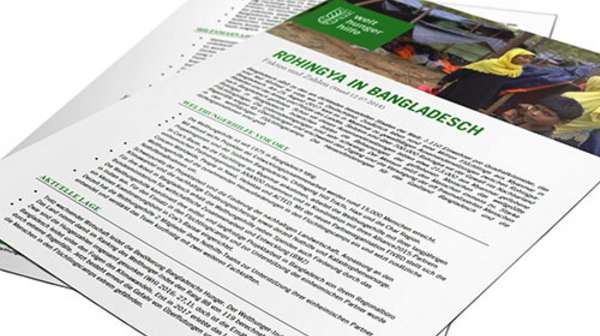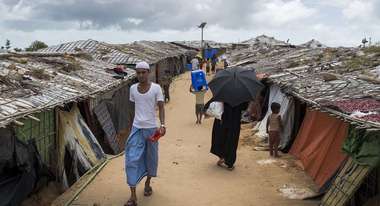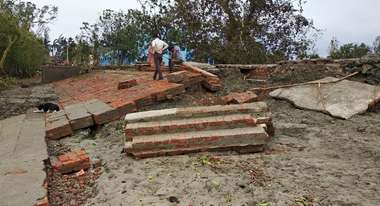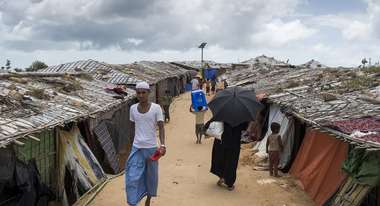Fact sheet: Background information on the current situation of the Rohingya in Bangladesh.
Rohingya Tragedy Even Without a Flood
Dirty water, the rainy season, and a lack of latrines mean that many of the Rohingya who fled to Bangladesh now face the threat of illness. Hygiene assistants protect people against plagues with simple tricks.
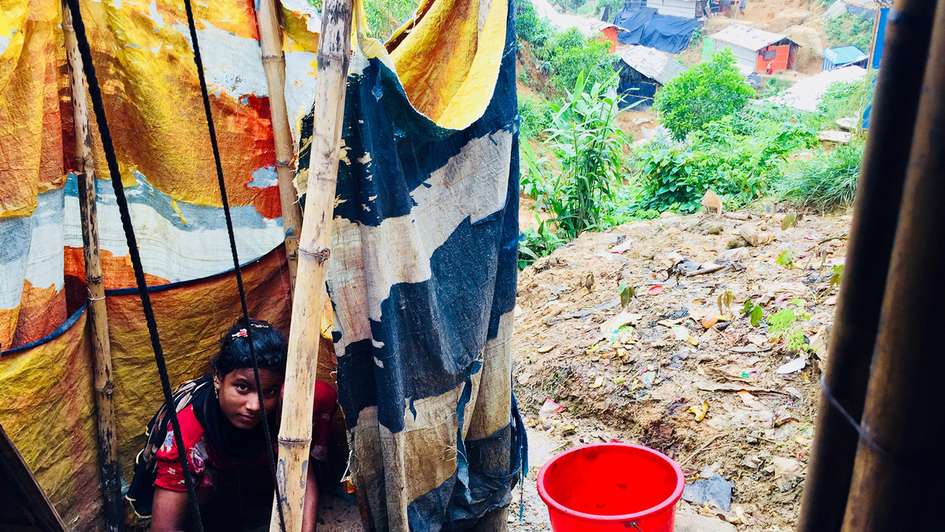
The monsoons have reached the Rohingya refugee camps. So far there have been no landslides in the camps around Cox’s Bazar in Bangladesh. However, the constant rain is turning the area where nearly a million people have taken refuge into a hostile swamp. Drinking water is getting dirty, clothes, food and huts are getting soaked through, and latrines are overflowing. The ubiquitous damp is a breeding ground for all types of illness, but even outside the rainy season, it is barely possible to lead a safe, healthy life in the overcrowded camps.
Welthungerhilfe has been working with its local partners for months to support people in their daily struggle for survival. The monsoons are still just one of a large number of dangers; illnesses pose a severe threat. Hygiene assistants are intended to protect the Rohingya against this. Of course, it is not always just a question of water and how to keep it clean. Hygiene promoters also share very simple tricks to help men and women to stay healthy in the tough conditions of camp daily life.
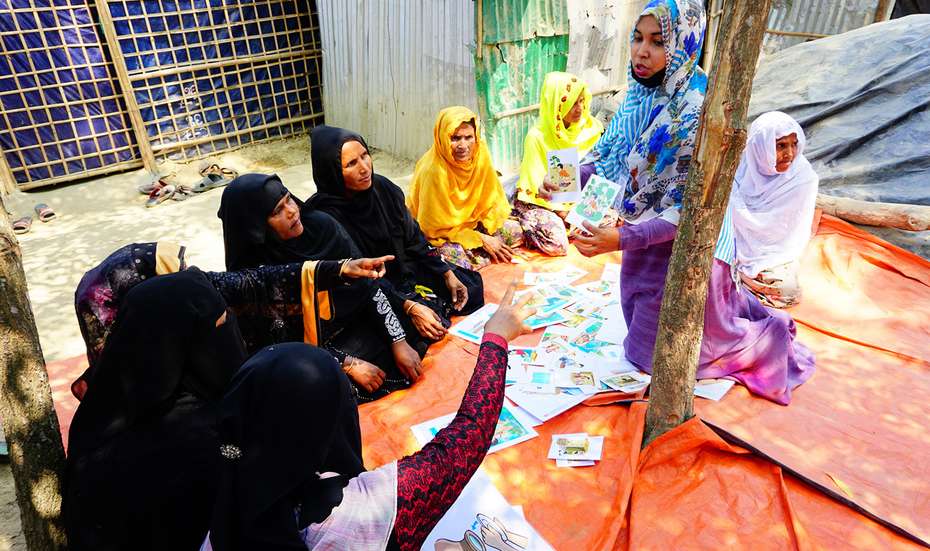
“This is the first time that we have spoken about menstrual hygiene,” translates the hygiene promoter. Menstruation is a taboo and living on the camp in a very confined space with many other families is not exactly “menstruation-friendly”. There is hardly any privacy, and there are still not enough toilets. Sanitary towels are a luxury.
The women spoke with our hygiene promoter for two hours about the situation in their camp. It is almost impossible to stay clean in the camps, with a lack of privacy and washing facilities. So how can women still protect what little water there is from the dirt and keep themselves and their children healthy? The women make plans to let them keep the area around their tents clean and protect themselves and their families from infections during the rainy season.
Simple Hygiene Tips Protect Against Illnesses
Their husbands are sitting two tents further along, speaking to a male colleague about the same issues. Often there are simple tips that can help. The water that comes out of the pump is clean, and it must be kept in a sealed water container to protect it against flies and dirt. If there is nowhere to wash your hands, you can clean your hands with ashes.
Together with our local partner organisation, Anando, Welthungerhilfe has trained 15 volunteer hygiene promoters. We also jointly organise distribution of hygiene kits. It is important that we discuss all the items in the kit; the reusable menstruation pads in particular are new to many women, although they make their periods a lot easier to deal with.
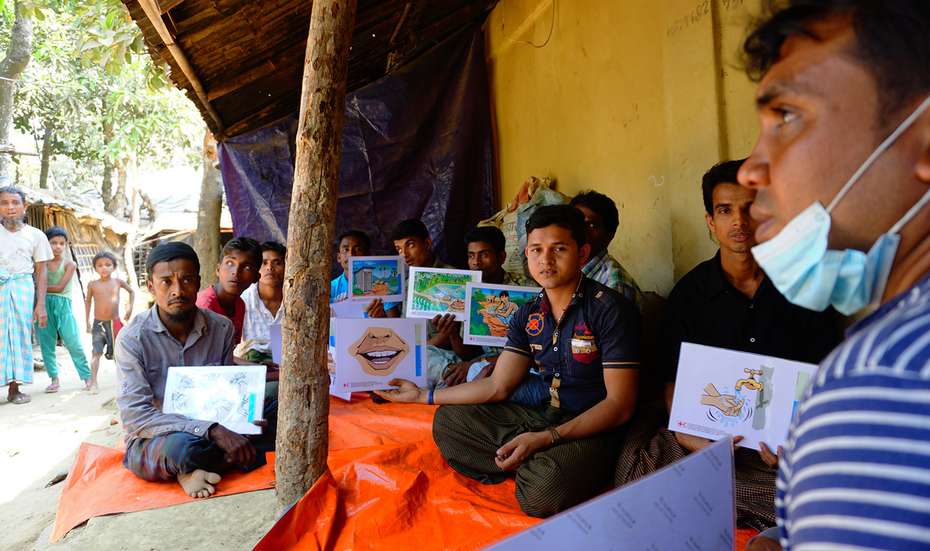
Hygiene training sessions have been held at the camps for months. The measures described should stop the outbreak of dangerous diarrhoeal diseases. We are also still distributing hygiene kits and water purification tablets to protect against such diseases. This assistance is really important. Considering the difficult situation faced by people here, we truly hope that this year’s rainy season and cyclone season are not even more extreme.
How Welthungerhilfe helps with our local partner Anando
- Distributing hygiene kits with important items, such as body and laundry soap, toothbrushes, toothpaste, menstruation pads, and water sandals for children and adults.
- Preventive distribution of water purification tablets.
- Additional volunteers are trained as hygiene promoters, to raise awareness about hygiene issues and diarrhoea.
- Theatre groups work on the issues of hygiene, health and nutrition, to present them clearly to the people in the camps.
- Distributing cookers and cooking fuel for preparing food.
- Providing voluntary assistants and camp representatives with useful materials, such as rain protection and torches, so they can safely offer support and prepare for emergencies. In case of massive floods or landslides, there are plans for further emergency distribution of water containers, hygiene kits and water purification tablets.





